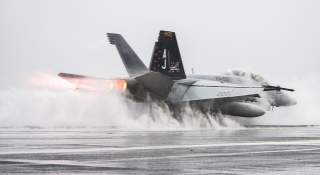Why America—and Its Political Leaders—Should Think Twice about Poking China
Politicians should carefully consider the impact that their words may have on America's international relationships.
Conclusion
I have been forced to take a negative tone in this article, but I do so for a constructive purpose: we can do better than this. Indeed, if peace is going to be preserved in the coming decade, we must do better. Doing better means formulating thoughtful arguments. That means justifying assumptions, considering alternative explanations and being genuinely curious about discovering the truth. Doing better means realizing that misperception is common in international politics, and doing what we can to mitigate this fact. Signals can be ambiguous; states often aren’t unitary rational actors; and situations evolve constantly. Finally, doing better means realizing that strategy is a dynamic process, and actions can have short- and long-term effects. In 1996, did anyone consider that by projecting force around China in such a humiliating manner that the United States would stimulate a huge Chinese military buildup, including A2/AD investments and an aircraft carrier program? Perhaps not, but that is the point. The Chinese are here to play the long game, and if Washington elites are going to make a habit of publishing articles calling on the United States to poke the dragon, then they should at least consider whether the dragon, in fact, needs to be poked and how the dragon might respond both today and a decade hence.
Jared McKinney is a nonresident fellow at the Pangoal Institution (Beijing) and a PhD Student at the S. Rajaratnam School of International Studies, Nanyang Technological University (Singapore).
Image: F/A-18F Super Hornet launches from the flight deck of the aircraft carrier USS George H.W. Bush. Flickr/U.S. Navy

